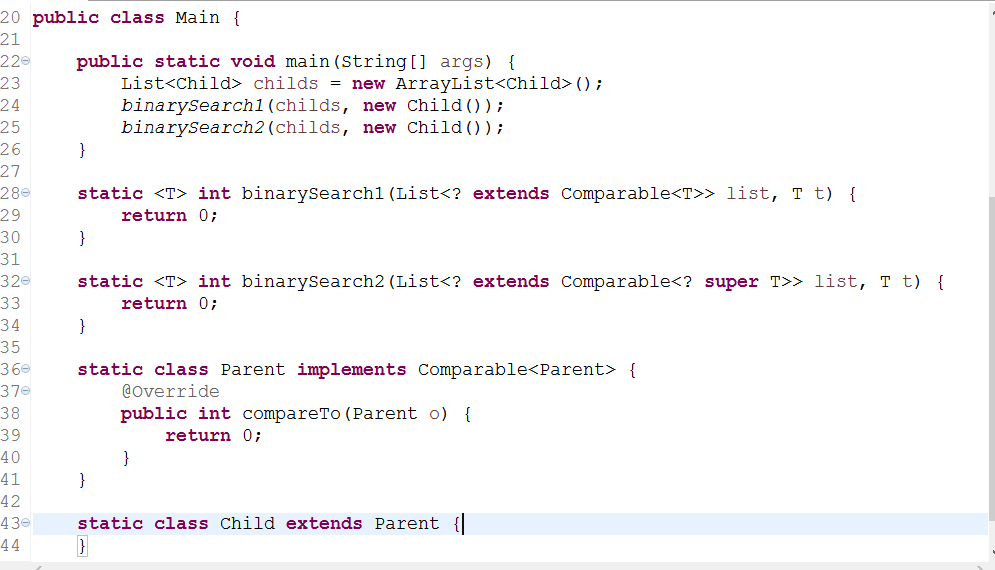62,614
社区成员
 发帖
发帖 与我相关
与我相关 我的任务
我的任务 分享
分享
public class Test {
public static void main(String args[]) {
List<Phone> phone = new ArrayList<Phone>();
phone.add(new Phone(1000));
phone.add(new Phone(2000));
List<HuaWei> huaWei = new ArrayList<HuaWei>();
huaWei.add(new HuaWei(3000));
huaWei.add(new HuaWei(4000));
binarySearch1(phone);// 编译通过
binarySearch2(phone);// 编译通过
/*
* Bound mismatch: The generic method binarySearch1(List<T>) of type Test
* is not applicable for the arguments (List<HuaWei>).
* The inferred type HuaWei is not a valid substitute for the bounded parameter <T extends Comparable<T>>
*/
binarySearch1(huaWei);// 编译不通过
binarySearch2(huaWei);// 编译通过
}
public static <T extends Comparable<T>> void binarySearch1(List<T> list){
Collections.sort(list);
}
public static <T extends Comparable<? super T>> void binarySearch2(List<T> list){
Collections.sort(list);
}
}
class Phone implements Comparable<Phone> {
public int price;
public Phone(int price) {
super();
this.price = price;
}
public int compareTo(Phone other) {
return this.price - other.price;
}
}
class HuaWei extends Phone{
public HuaWei(int price) {
super(price);
}
}
